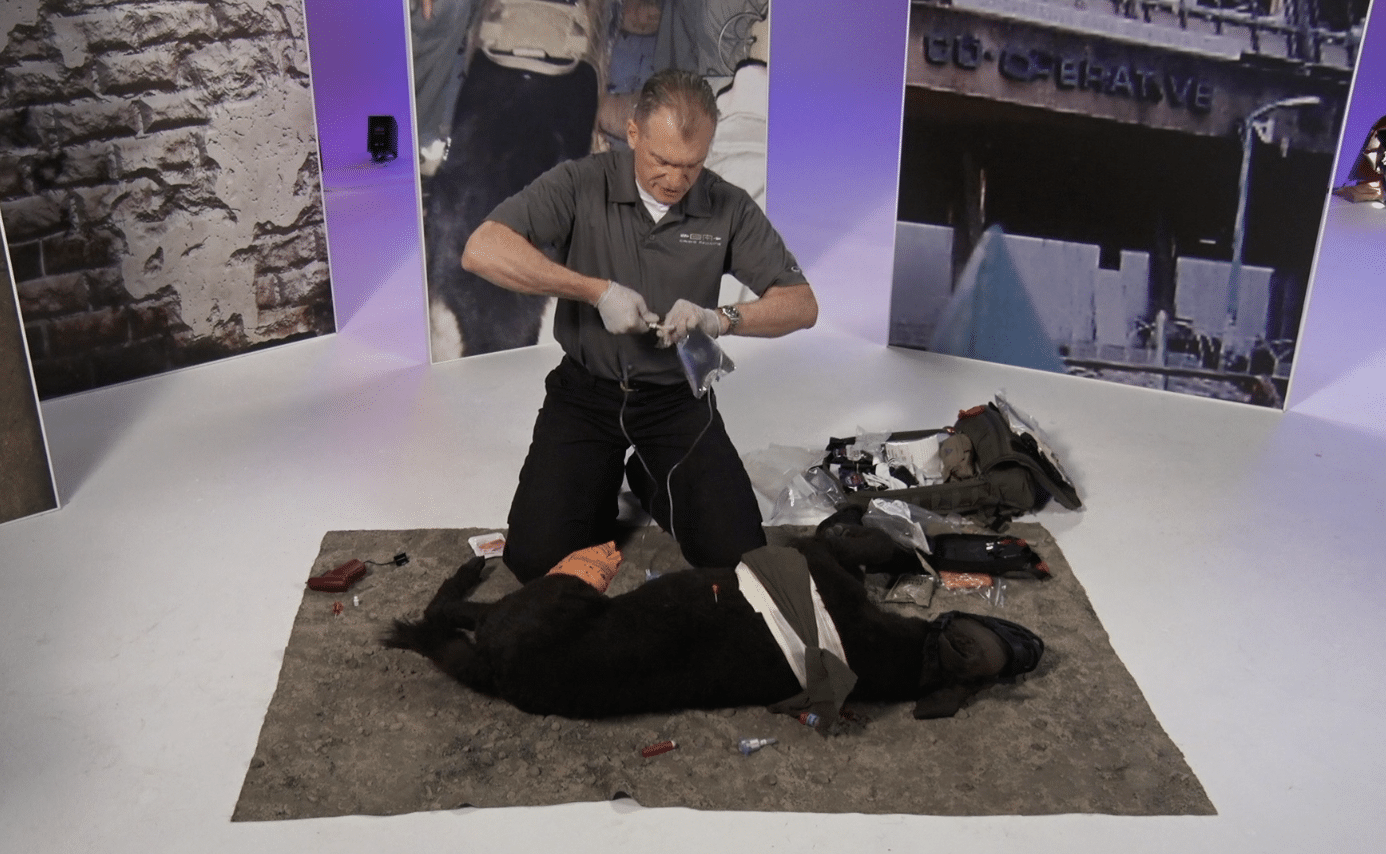
K9 TCCC Updates
- Posted by Mike Shertz MD/18D
- Categories K9 TECC/TCCC
🕖 Reading Time, 2 minutes
In May, 2023 the Canine Combat Casualty Care Committee updated the K9 TCCC guidelines for the first time since 2019. Admittedly, the changes were fairly limited, mostly applicable to IV, medications, and to put the guidelines more in line with the human guidelines.
K9 Fluid Resuscitation
Hextend, a crystalloid / colloid IV fluid which had fallen out of the human TCCC guidelines several years ago is no longer on the TCCC guidelines for K9s, although it is still used by some Veterinarians for K9 volume replacement in the civilian community.
The Committee added a recommendation for 1 gm calcium IV / IO after the second unit of whole K9 blood / blood products, moving more in line with the human guidelines.
K9 Medications
TXA was added at a affixed dose of 0.5 gm slow IV push for K9s anticipated to need significant blood transfusions, with a significant head injury, or altered mental status from a blast or blunt injury.
They have provided a tiered approach to pain management options, breaking pain categories into mild, moderate to severe, and the need for chemical restraint / sedation with specific drug doses and combinations for each category.
They have also provided specific drug doses for parenteral antibiotics.
K9 Eviscerations
Treatment of abdominal eviscerations is essentially duplicative of the human TCCC guidelines.
K9 Tactical Field Care
Finally, they have provided a “Basic Management Plan for Tactical Evacuation Care.” However, it largely just says see the applicable section in the K9 TCCC guidelines for Tactical Field Care with the exception of hypertonic saline dosing for impending brain herniation in severe head injury.
To review the updates yourself, they’re published at Deployed Medicine.
To learn more about how to use your human TCCC/TECC skills to take care of operational or working K9s (or simply your own favorite canine), check out our online class
Dr. Mike Shertz is the Owner and Lead Instructor at Crisis Medicine. Dr. Shertz is a dual-boarded Emergency Medicine and EMS physician, having spent over 30 years gaining the experience and insight to create and provide his comprehensive, science-informed, training to better prepare everyday citizens, law enforcement, EMS, and the military to manage casualties and wounded in high-risk environments. Drawing on his prior experience as an Army Special Forces medic (18D), two decades as an armed, embedded tactical medic on a regional SWAT team, and as a Fire Service and EMS medical director.
Using a combination of current and historical events, Dr. Shertz’s lectures include relevant, illustrative photos, as well as hands-on demonstrations to demystify the how, why, when to use each emergency medical procedure you need to become a Force Multiplier for Good.

